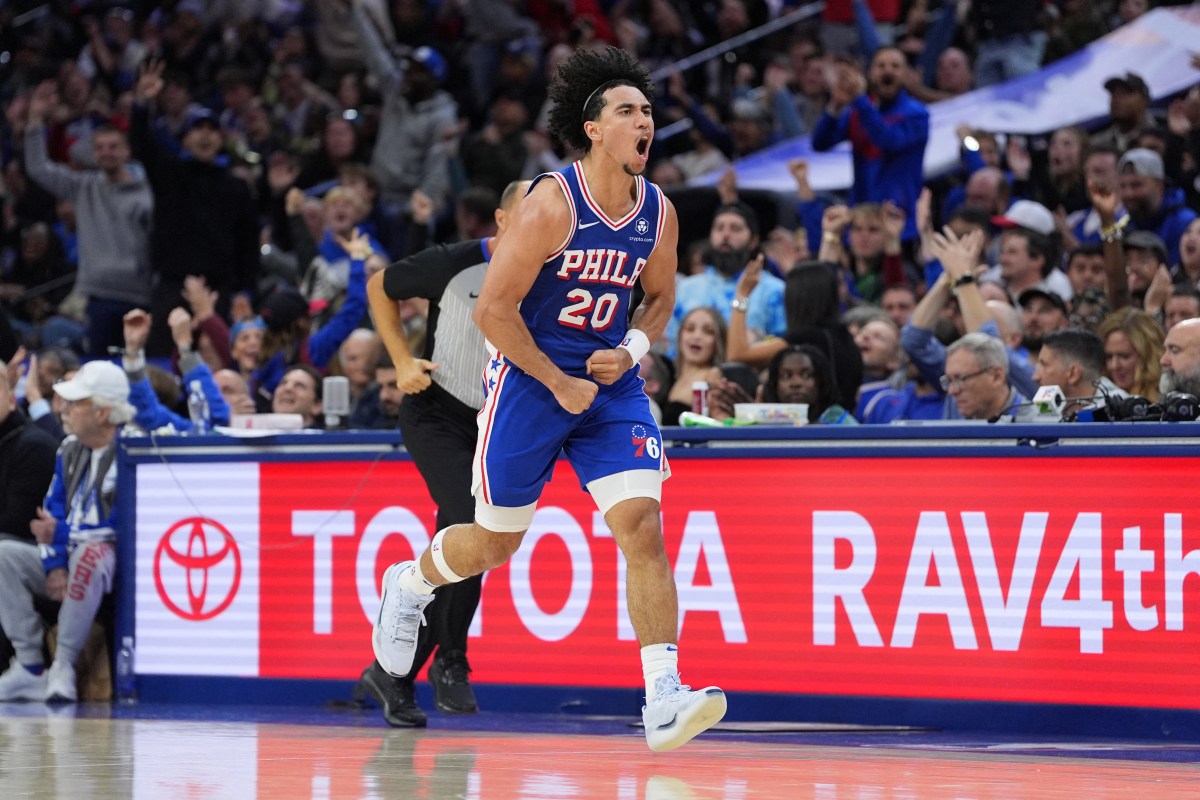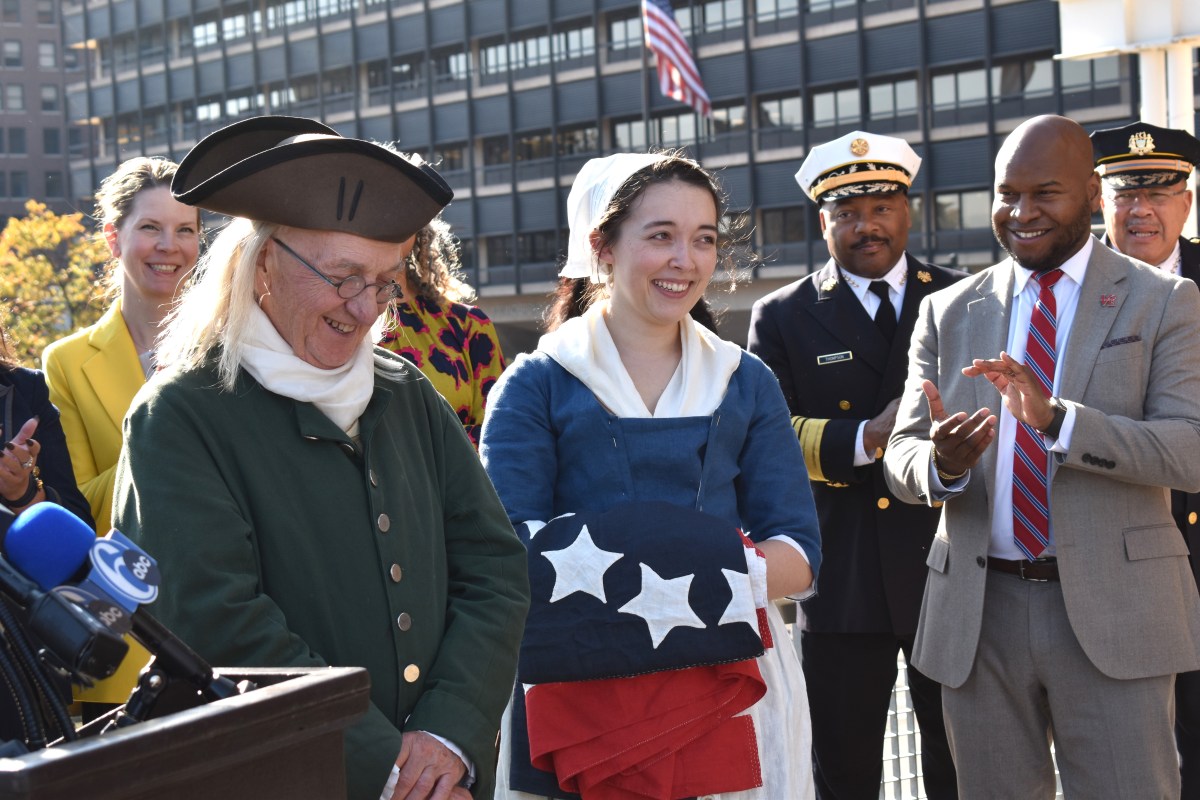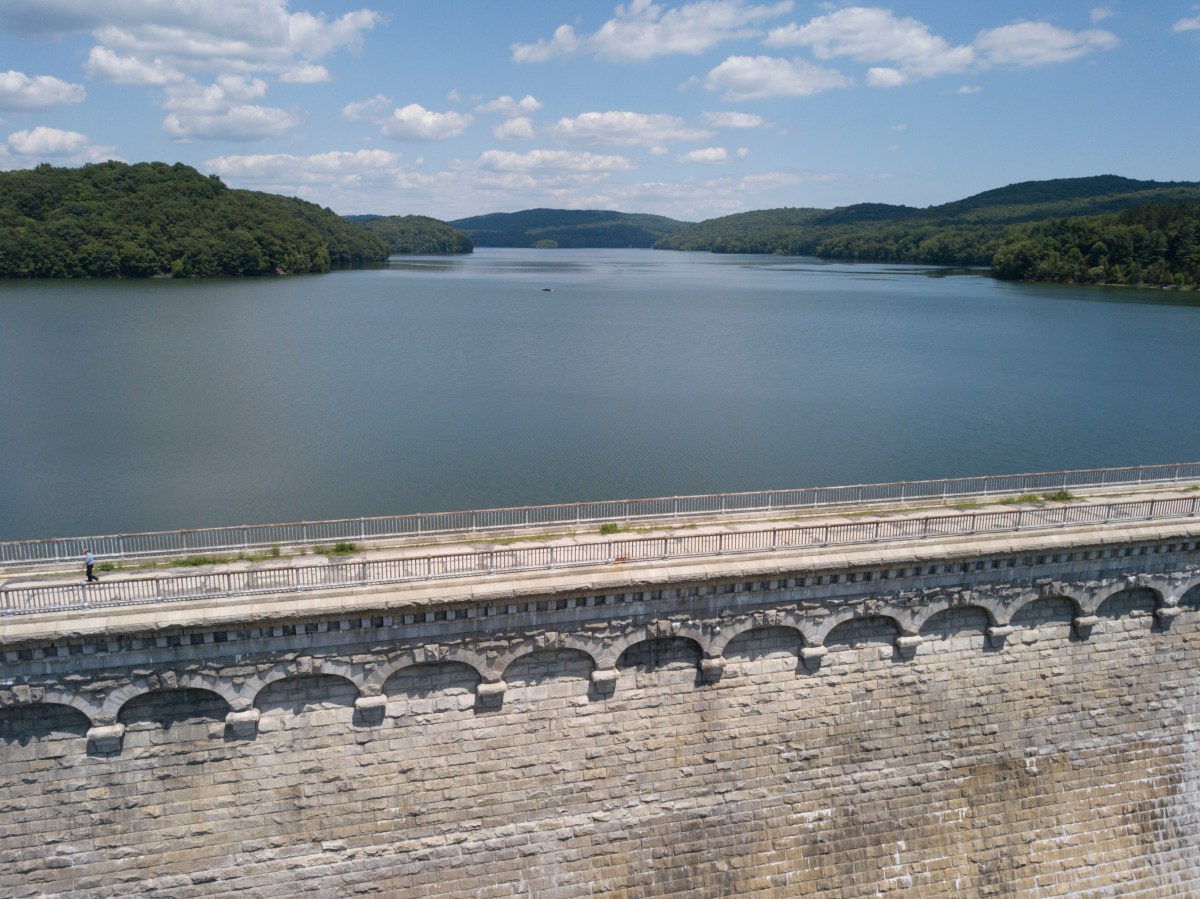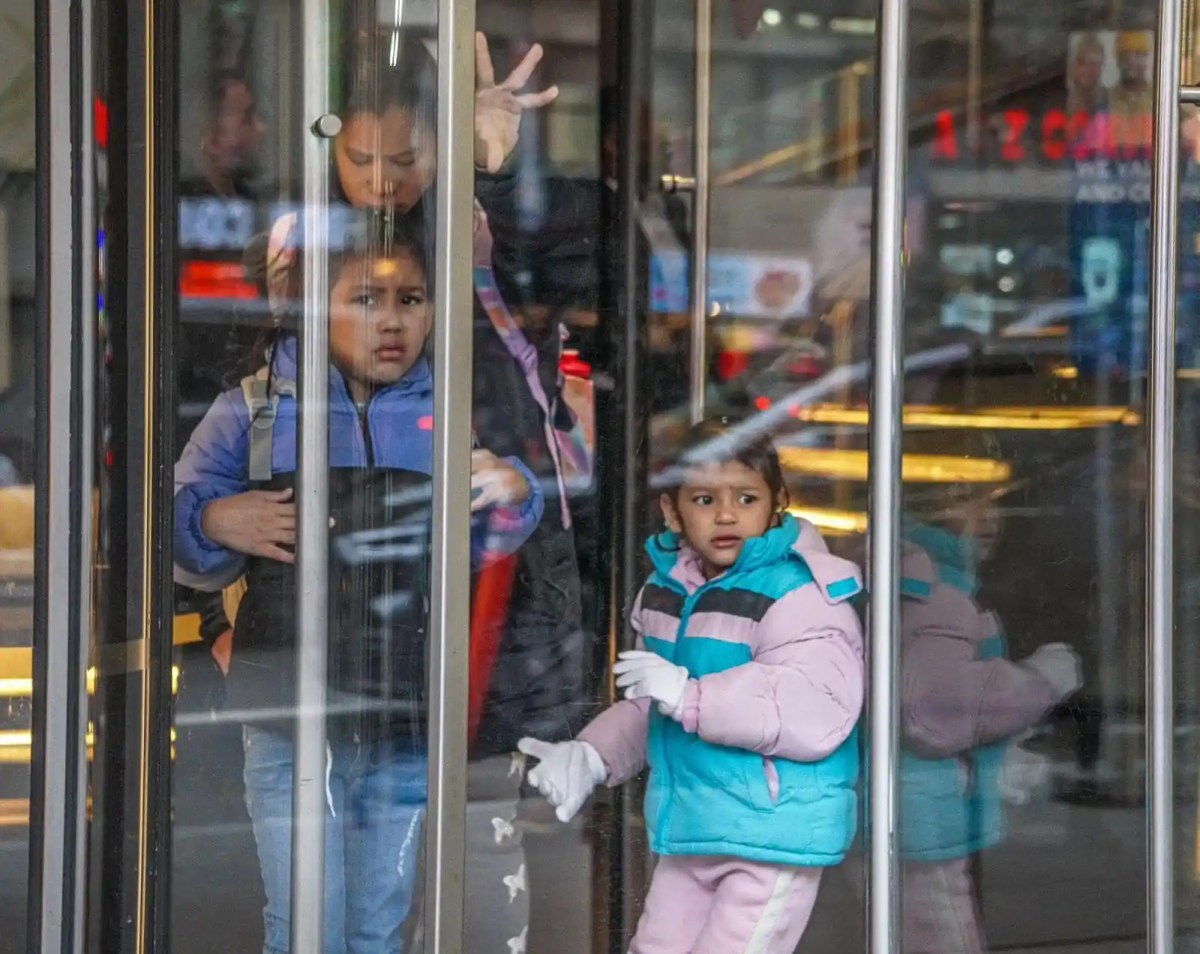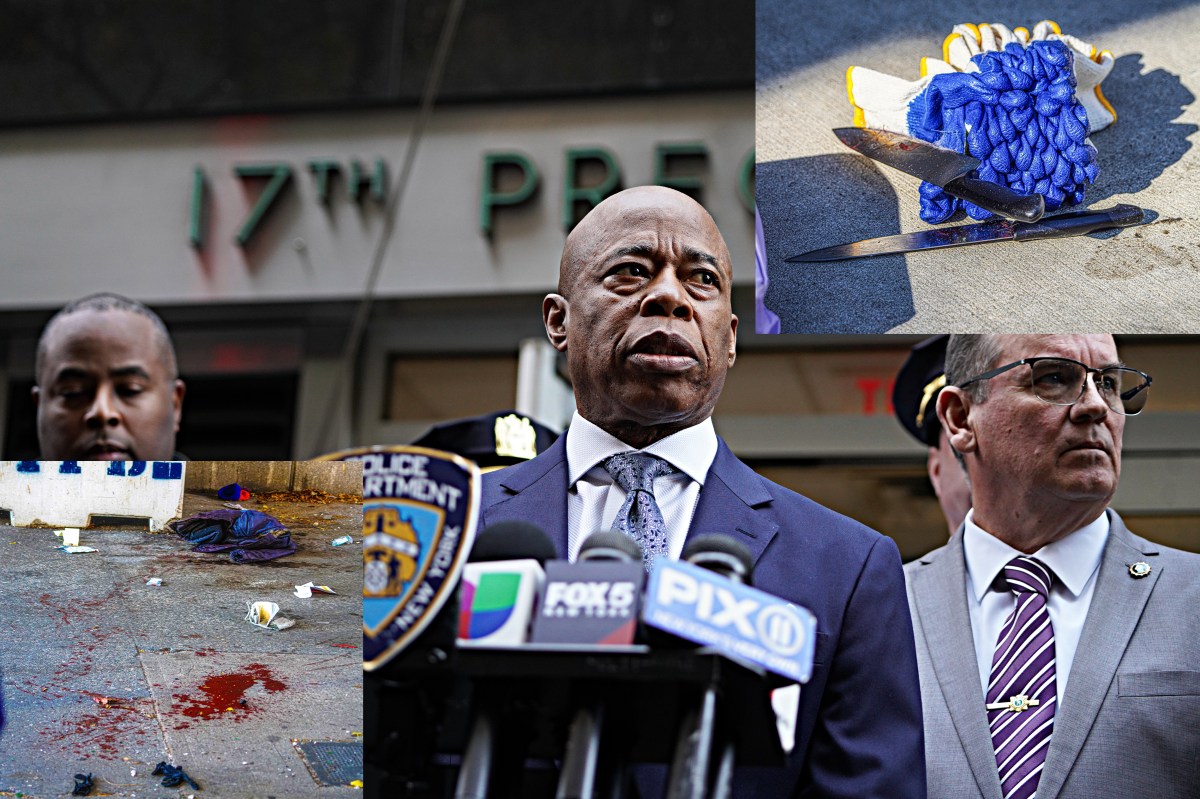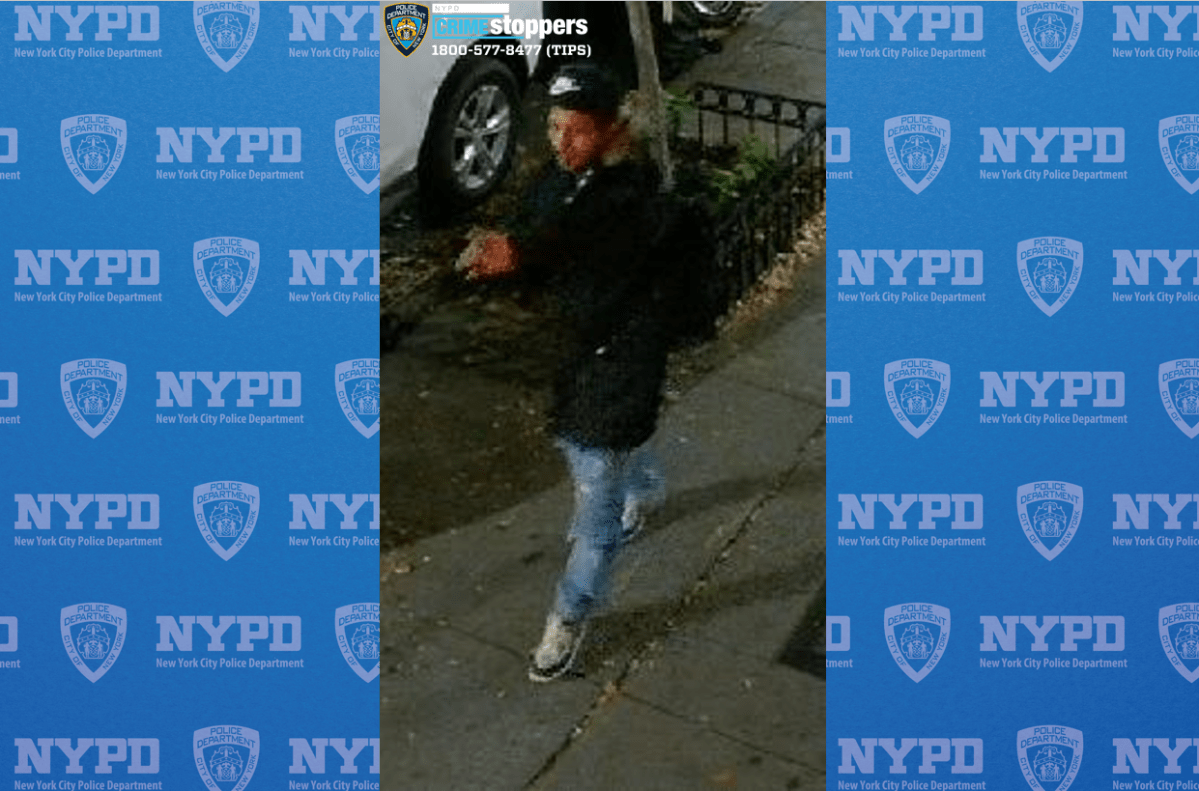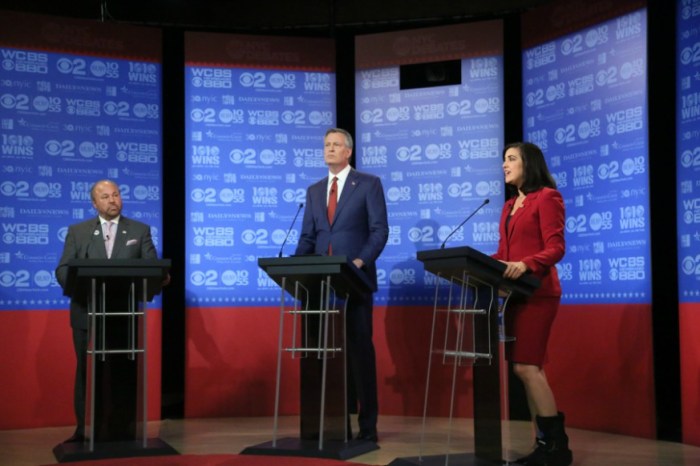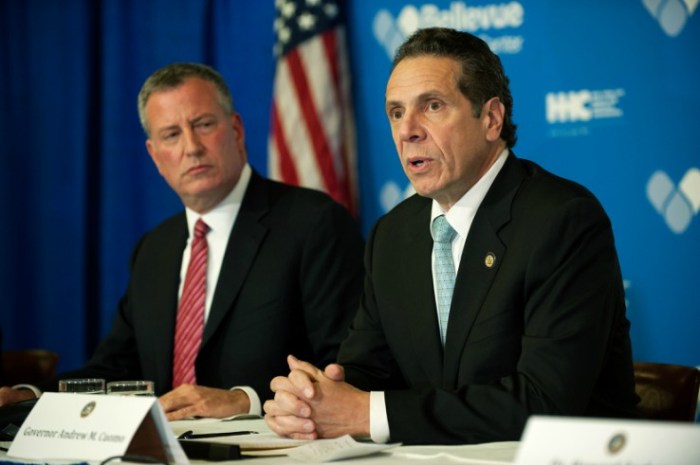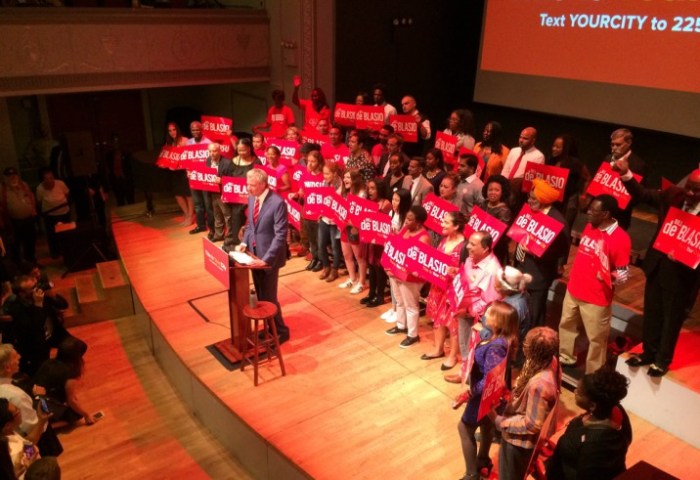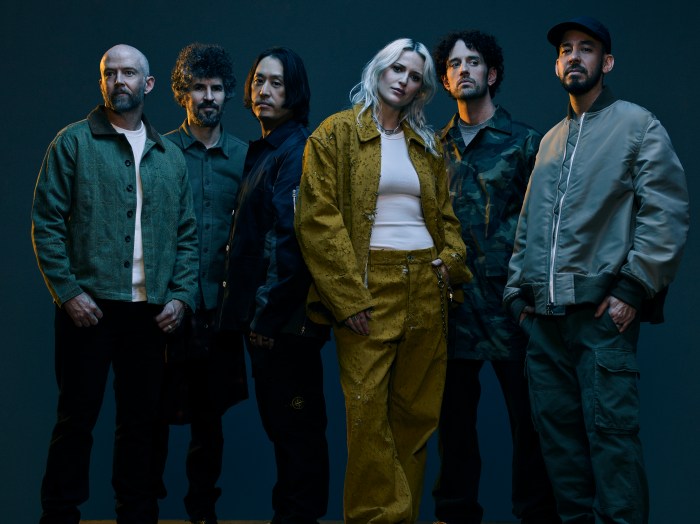With the 2017 general election just weeks away, Mayor Bill de Blasio, Republican Staten Island Assemblywoman Nicole Malliotakis and independent former NYPD detective Bo Dietl will come face to face on the debate stage for the first time Tuesday night.
New Yorkers can likely expect the candidates to spar over important issues that include handling the city’s aged transit system, housing, homeless and President Donald Trump.
“Mayor de Blasio is likely to stand on his record, which for the most part is strong and consistent with what he promised to do when running four years ago,” said Joseph P. Viteritti, professor of Public Policy at Hunter College. “The other candidates are likely to focus on what they believe to be the shortcomings of his first term. Malliotakis has dwelled on transit issues and problems with the MTA, even though these concerns are primarily state rather than city issues. I would not venture to guess at what Dietel will do, other than to say that it will be provocative.”
Viteritti released “The Pragmatist: Bill de Blasio’s Quest to Save the Soul of New York” on Sept. 5. While the mayor is its central focus, the book also offers an in-depth history of city mayors from Fiorello La Guardia to Michael Bloomberg.
Though Democrat Mike Tolkin, who is running on the Smart Cities ballot, received a letter indicating that he met the fundraising and spending requirements put in place by the city’s Campaign Finance Board, which oversees the debates, he has not received an official invite from its media sponsor to participate.
To that end, Tolkin told Metro Tuesday that he is filing a lawsuit against the CFB and the debate’s media sponsor, NY1, for his inclusion.
“Central to the meaningful voter choice in any election is the ability for ballot access political candidates to participate (in) governmentally sponsored debates, to have their ideas and political expressions hear, and to allow the voters to make an informed choice without undue influence in favor or against any candidate (in) a group of candidates,” the suit said.
The filing also asks that the debate not be conducted or broadcasted without Tolkin’s participation. NY1’s media department has not yet responded to a request for comment on the suit.
Sal Albanese, de Blasio’s previous debate sparring partner, lost to the mayor in the Democratic primary last month and is now running on the Reform Party ticket in the general election. Like Tolkin, he, too, was locked out of Tuesday’s debate.
Albanese announced last Monday he was suing the board for the right to debate. “It seems someone or something wants to muzzle and stifle Sal Albanese’s message,” his filing said. On Friday, the Appellate Division of the New York State Supreme Court said there was “a basis for the suit to be considered by a full panel of appellate judges,” according to a statement from Albanese’s campaign.
De Blasio has led his challengers in the polls throughout the campaign season, and that hasn’t changed according to the latest one released Thursday by Quinnipiac University.
The poll found that the mayor has 61 percent of the city’s likely voters, while Malliotakis has 17 percent, Albanese 8 percent and Dietl 6 percent.
The mayor leads in Manhattan, Queens, the Bronx and Brooklyn, while Malliotakis has 47 percent of likely voters in her home borough of Staten Island.
The incumbent, who spent much of the previous debates highlighting his past four years in office, has a 58 percent job approval rating in the latest poll.
The second and final debate with the leading mayoral candidates will take place Wednesday, Nov. 1 at CUNY’s Graduate Center Studio.
5 fast facts about the first general election mayoral debate
WHO: Democratic incumbent Bill de Blasio, Republican Nicole Malliotakis, independent Bo Dietl
WHEN: Tuesday, Oct. 10, 7 p.m.
WHERE: Symphony Space (2537 Broadway)
WATCH: NY1, NY1 Noticias, live stream on NY1.com
LISTEN: WNYC







